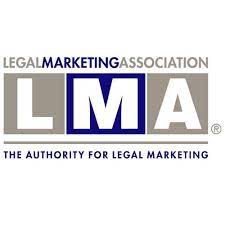Company Marketing Spam
Spam in internet marketing is abundant. It started with email spam, then link spam, then content spam, and social spam. A new form of spam is coming online and tending to rank high in search: “shell” websites.
Shell websites have a new name and branding, but offer essentially the same services as the parent company. In short, the company is trying to get two bites at the apple in search rankings: one for the parent company and one for the shell corporation. Alternatively, it is trying to rank high in a niche market in which they have no business ranking high.
Niche Website vs. Shell Website
Some will say that shell websites are great niche marketing. The company is creating a new identity to market to a niche audience. If they do this correctly, and legally, then I have no issue with this practice.
Typically, proper niche marketing sites will clearly disclose that they are a division or subsidiary of the parent company or a fully incorporated business and owned by the parent company. Moreover, they could just be a sponsor of the website. Those are all legitimate ways to run a proper niche marketing website.
We see this type of niche marketing quite often with law firms. Firms with varied practice areas will create niche marketing blogs, websites and information portals which can be very effective in targeting a specific audience.
However, what if the same law firm, web agency, plumber, or accountant simply set up a new website by just changing their name, logo, and text? They can get a new phone number inexpensively and forward it to their office phone (and even announce the call differently, so the receptionist could answer the call under a new name). BAM, you are in business under a new company name. This shell set up makes it hard to determine who you are really working with online.
Often, these shell websites make no disclosures that they are affiliated with or owned by a parent corporation. They don’t disclose that the same team at agency X or firm Y will be doing all the work. The shell site just features a new logo, new domain, new text and very little company information (because there is none).
A recent article goes into this topic in great detail, highlighting the Church of Scientology as the latest group to attempt to maximize on phony listings and fake reviews.
Would you consider this a trust issue or just good marketing?
How to Check Who you are Contacting and Working With
Websites are usually shell companies if they have the following characteristics:
- No team information – The site features almost no team information, photos or staff bios. It may include a generic paragraph of text about their team.
- Very general About Us section – The About Us section contains little substantive information about the company.
- No robust portfolios or showcase section – Web design sites feature a generic portfolio with few examples.
- Contact Form Only – You can only contact the company via a form and/or an 800/888 number; no local information or specific contact person is provided.
- Web Form Only – No phone number is provided, only a web form that you must fill out.
- No address– Due to Google’s map rules, shell companies typically do not showcase an address, as it could duplicate their main website.
- Generic Domain – There is typically a keyword-rich domain to try to rank higher.
- Template – It is typically a template website with stock photos and generic smiling people.
What is Wrong with Marketing through Shell Entities?
Below are four issues that frequently arise in connection with the use of sham websites:
- Legal – The first question is whether the entity is legal. If you create a new company and do business as that company, then at the very least you must have a DBA on file with the local state (you may even need to incorporate). Some of these websites may not have filed the proper paperwork which creates potential issues.
- Pollution – Shell websites pollute the web and create more crap online for users and search engines to filter through. Google does a good job of filtering web results with real companies that have a real physical address, phone and contact. However, even that can be gamed with fake addresses, forwarding addresses, shared offices, and other tactics.
- Confusion – Shell sites confuse users who are seeking out real experts in an industry. The danger is that a niche marketing website creates an aura of expertise in a specific industry. However, the vendor may not have any experience at all, it may just be marketing itself as such which can lead to issues with the client who hires the company. At the very least, it wastes the time of people who are seeking assistance from a reputable, capable firm.
- Accountability – Is the main company actually doing the work? Is the shell company performing the work? Who is behind the company? This basically is a summation of the legal and confusion issues.
What Do You Think?
What are your thoughts? Do you think this type of marketing should be allowed?







